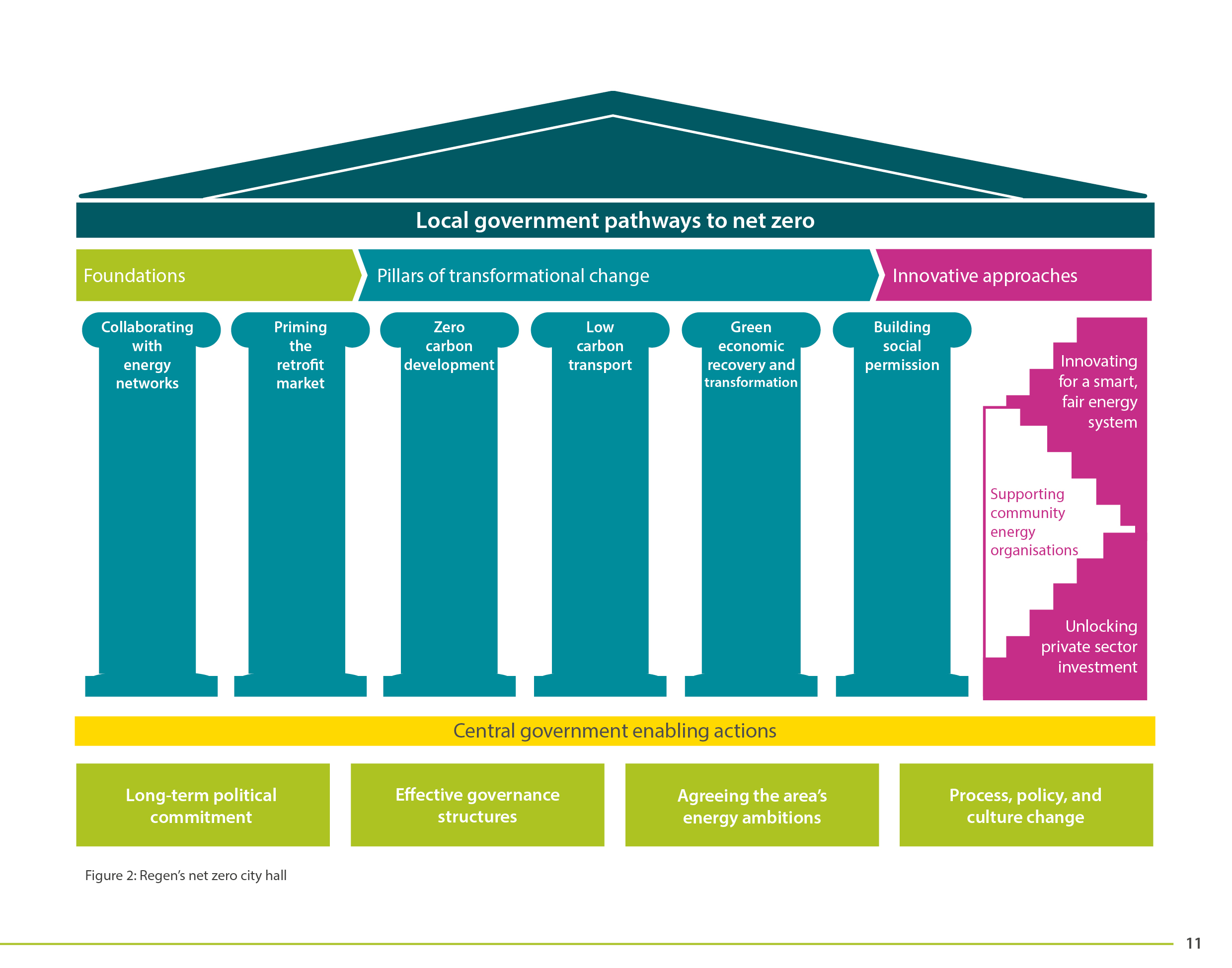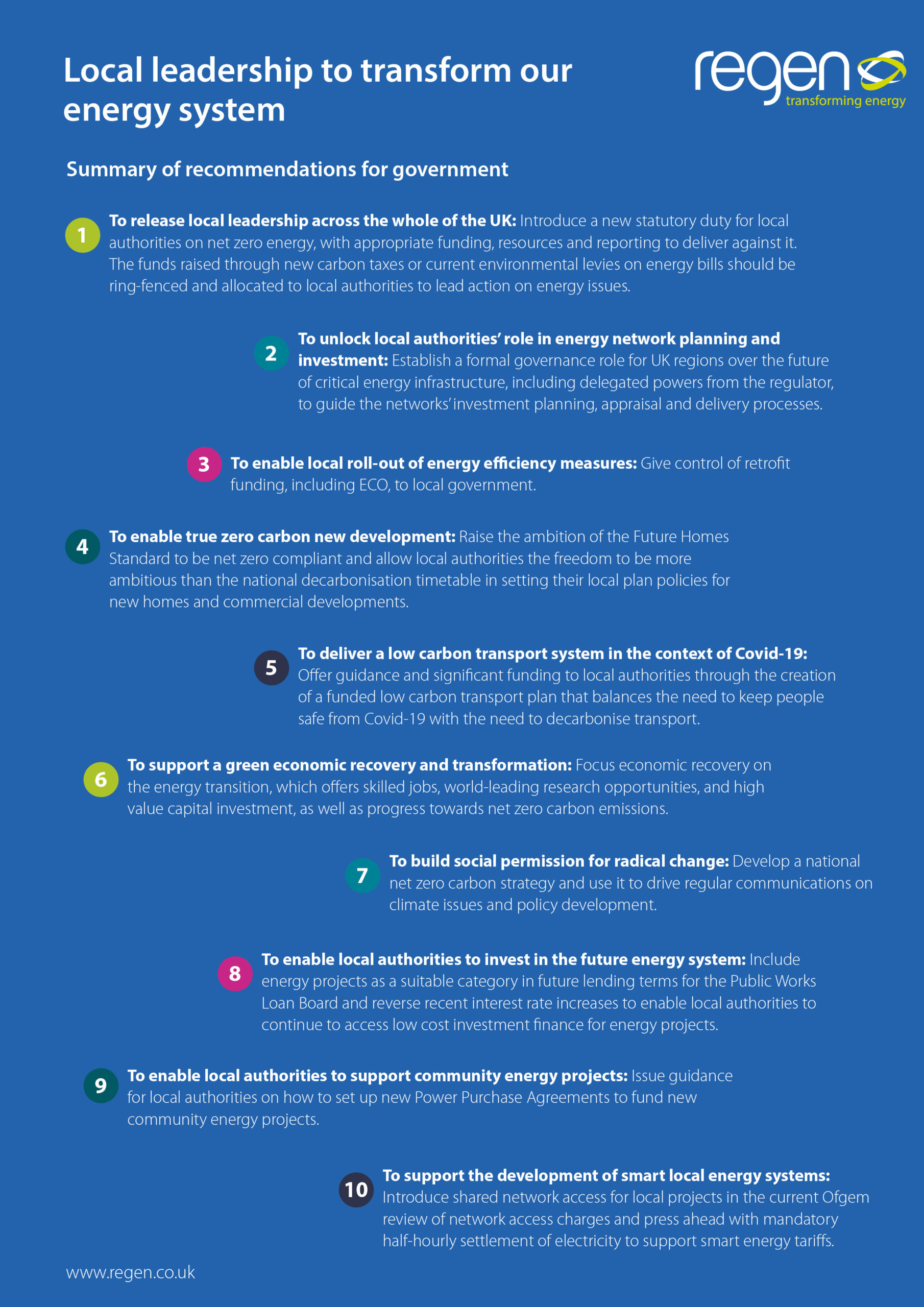 Hazel Williams, head of delivery at Regen, introduces the latest paper in our Make a Difference thought leadership series: Local energy leadership to transform our energy system.
Hazel Williams, head of delivery at Regen, introduces the latest paper in our Make a Difference thought leadership series: Local energy leadership to transform our energy system.
I’ve spent the last 12 years working with local authorities on climate and energy issues. I’ve often been asked by local government officers “what can we do on energy?”. The latest paper in our Decade to Make a Difference series, Local leadership to transform our energy system, sets out to answer that question, supported by inspiring examples from some of the pioneers.
Given the breadth of roles that local government plays, and that energy touches every aspect of our lives, capturing the potential roles of local authorities on energy has been a challenge I’ve wrestled with over the last six months of researching this paper. Local authorities in England have the General Power of Competence (Scottish and Welsh local authorities have an equivalent general “well-being” power), meaning that they are limited in what they can do only by what is legal, their budgetary and resource constraints, political will and their imaginations.
Some areas have co-invested with their local community in renewable generation projects, with some, such as Swindon Borough Council, setting up an arm’s length development organisation. Others, such as Orkney Islands Council, are working collaboratively with their Distribution Network Operator to explore the challenges of smart local supply through innovation projects.
It is clear that the UK will not achieve its net zero ambition without the active engagement of the people and organisations living and working in each of the UK’s nations, cities and regions. A locally led energy transition can bring the skilled jobs, investment and resilience needed for a green recovery and put the country on course to achieving a zero carbon society.
Local actions to build a net zero energy system
Regen’s net zero city or county hall diagram sets out six “pillars of transformational change” – these are the six areas where we believe local government can and should play a key role to transform the energy system, from supporting the retrofit market and developing low carbon transport to building social permission for radical change.
These six pillars are supported by four foundation stones. When researching the paper, I investigated why certain areas had gone further and faster in addressing energy issues and found that these vanguard authorities had four foundations in place:
- Long term political commitment
- Effective area-wide governance structures
- An agreed level of ambition
- Net zero ambitions embedded in the organisation’s culture, ways of working and policies.
The final section of the paper looks at innovative approaches to action that local authorities have taken, from co-investment with the private sector to supporting community organisations and collaborating on innovation trials.

National government support for local leadership in the context of the Covid-19 pandemic
The Covid-19 pandemic is a terrible tragedy, with so many lives and ways of life lost and affected. As a country, we should not miss the opportunity that such devastation provides to re-think our economic and wellbeing priorities. However, for local authorities, the pandemic has wiped out budgets and stolen resources that could have been invested in climate and energy issues this year.
Local authorities will need to use all their creativity and innovation to create income streams and share resources to unlock energy projects. At this critical moment, I hope the paper will provide some inspiration on how investing in energy projects and programmes and working with public, private and community partners can bring co-benefits that far outweigh the investment costs.
Without national government action, local government won’t reach the full potential of what it can do on energy. In the paper, we set out 34 recommended national government actions to further unlock the ability of localities to drive action to transform our energy system. Here are our top ten asks of central government:

Whilst local authorities need much greater powers and funding on energy, in researching this paper, I have been inspired by the action that is already taking place across the local areas of the UK, demonstrating that, with political will and a dedicated team, local government can be a catalyst for decarbonising our energy system.
Download the full report here for more information and join us for an online presentation and discussion on 11 September.

